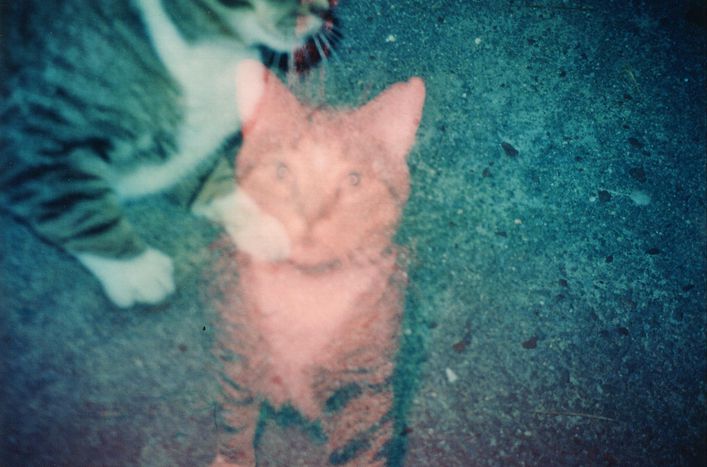
SLOVENIA DEBATE: Man - animal to man
Published on
If we think about it, many of the we use in everyday speech involve animals or specific animal species (e.g. rodents, reptiles, insects, etc.). This brings up a lot of questions. What is the symbolism behind these animals? Which human characteristics do we attribute to particular animals in metaphors, fables, cartoons and films?
Do »animal stickers« much too often stuck onto humans portray the extreme closeness and at the same time the extreme foreignness of animals in relation to humans, a foreignness much too often abused by man to legitimize our dominance over the animal world? Or is it all about merely about a certain disgusting quality that we find repulsive but still attracts our attention and imposes itself on us?
The evergreen of nature-culture can often be interpreted as and applied to human-animal relations. These binary oppositions tend to open many underlying questions and problems deriving from the arbitrary opposition of nature and culture. Binary oppositions also associated with relations between man and animal would among others include the opposing poles of the sacred and profane, good and evil, up and down…. all the way down to the opposition key to our existence and identity, that of humans and non-humans. So who or what are non-humans? Animals seem to be the obvious answer but the category may also be applied to marginalized and oppressed social groups marked as »unwanted«, non-human, animal by the dominant culture. These binary oppositions may be found in the simplest of everyday experiences, because it is through them that we continuously reshape and affirm our own identities. If I am »A«, everything different from me must be »non-A«.
Binary oppositions thus appear to be artificially constructed, their sole purpose being helping us to survive, to be different from the Other. This kind of reasoning may lead us to the conclusion that we are actually much, much closer to animals and people we categorize as Others than one might think. We are too much alike. There is too much of US in THEM, so we can only protect our own identity by perceiving Them through a binary opposition. Despite the fact that today’s society, which seems to be becoming more and more liberal, appears to be shifting borders and trying to find ways of incorporating marginal groups (in concrete cases being groups like homosexuals, people of African descent, Jews, etc.) into »the mainstream group«, we are also living in an era of permanent change and constant fear.
There will always be someone who will be perceived as different, perhaps a new Other, who will remain a potential threat to the existence of the Subject. Everything different from me (and considered through the lenses of uniqueness and individuality everything IS different from me), threatens me. Because it may essentially turn out to be LIKE me. Which is why it is better to keep it at a safe distance, somewhere far away. Everything that is ours is glorified, it dominates us, and everything that is not ours is resented or looked upon with disgust. Even if we seemingly deal with one Other by accepting them as part of our society, there will ALWAYS remain someone else, a different Other who will serve our need to stabilize our identity. »We« do not exist without »Them«. Luckily, thinking attracts thinking and contemplating »Us« and »Them« was the primary goal of a two-day project which took place in Ljubljana on 29 - 30 November 2010 (AKC MetelkovaKult.co, different locations), organized and run by the Association of students of Culture studies, . A series of lectures, art and theatre workshops, film screenings and debates were all dedicated to investigating man’s attitude to animal as part of a project titled Man – animal to man.
This was the second time the project took place, the focus this year being the fable, a didactic literary genre which depicts traits of human character by portraying them through animals. Events organized in the framework of Man – animal to man examined different aspects of the fable and its influence on man’s attitude toward the animal world, nature, society and culture. The varied programme of the project was aimed at encouraging younger members of society to demonstrate an active, critical attitude through participating in workshops and a Student fable contest. The conclusion and definitely one of the highlights of the project was a social night at the Café of the Slovene Ethnographic Museum where the participants got to see the final product of the two-day long theatre workshop – a short play, hear the winning student fable and had a chance to make donations to the animal asylum in Maribor in exchange for hand-painted T-shirts made by the participants of the art workshop.
To sum up, a contribution, perhaps small in size but definitely grand in quality, to encouraging greater tolerance towards Others and reminding us about the problematic binary opposition of human vs. animal.
Written by: Barbara Polajnar Translation: Natalija Majsova



